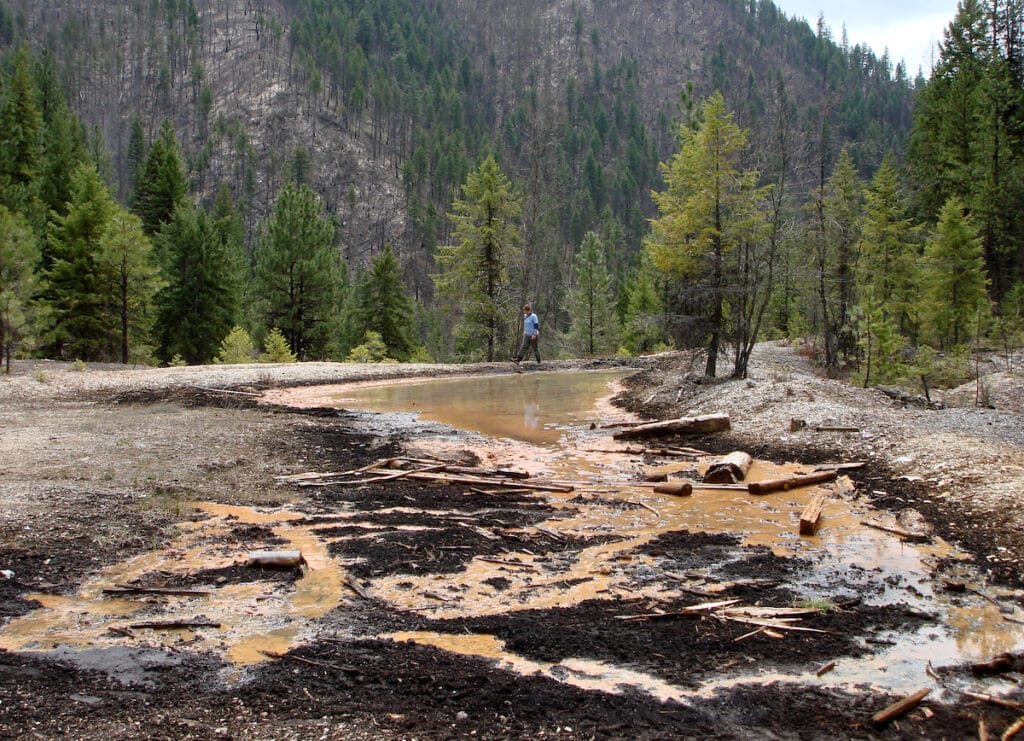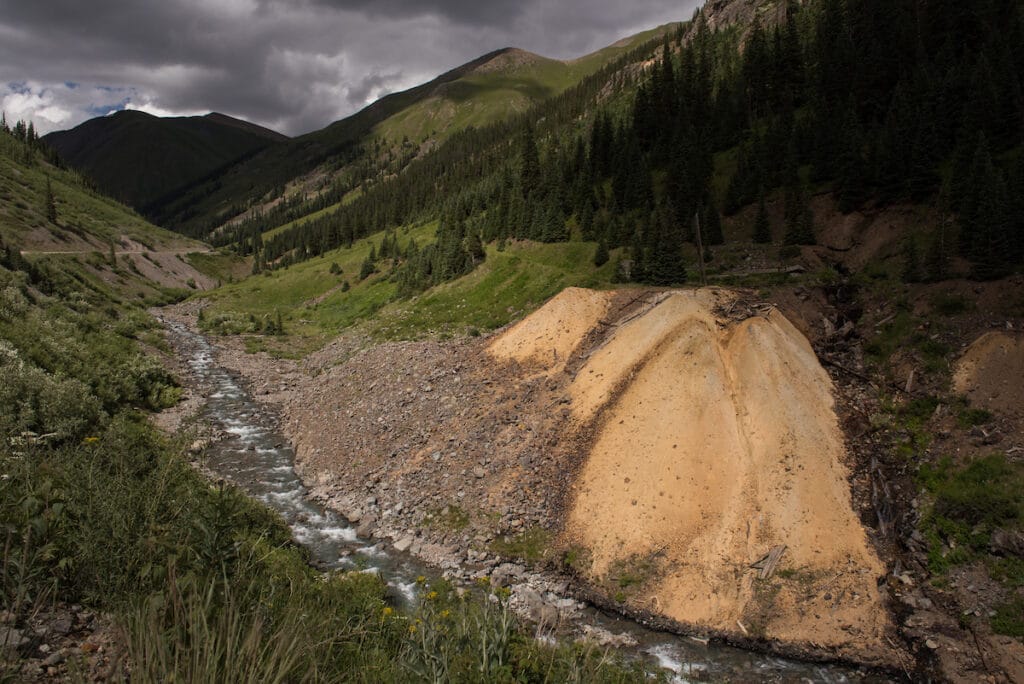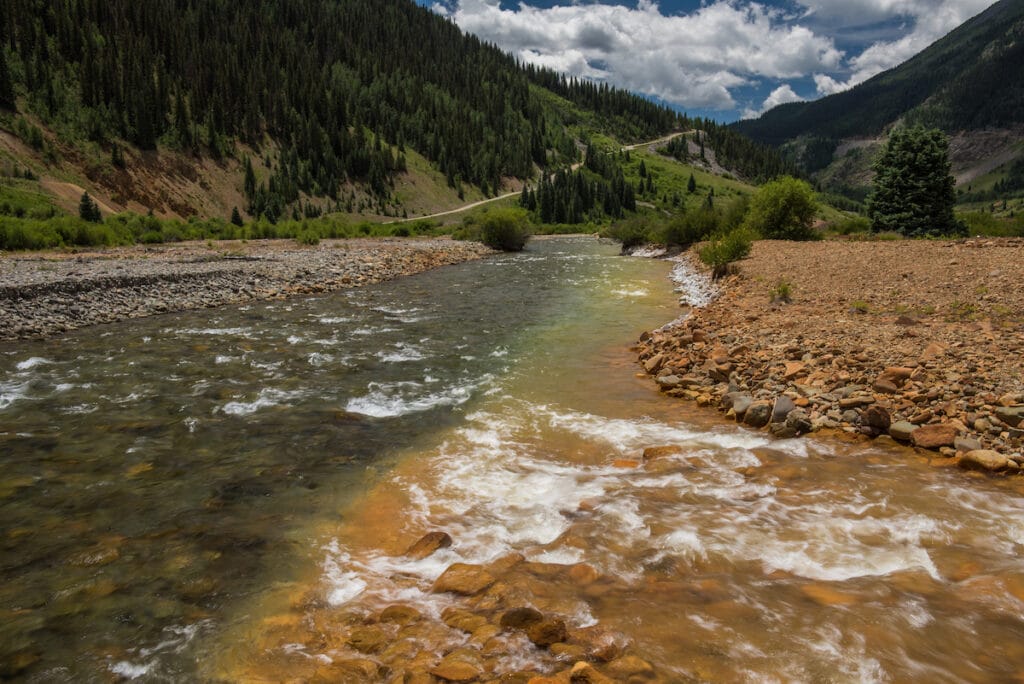Good Samaritan Bill Receives Praise in Senate Subcommittee Hearing on Mining Reform
On Capitol Hill yesterday, Trout Unlimited CEO Chris Wood testified in the Public Lands, Forests, and Mining Subcommittee of the Senate Energy and Natural Resources Committee about two pieces of mining legislation: the Mining Regulatory Clarity Act of 2023, introduced by subcommittee chair Sen. Catherine Cortez Masto (D-Nev.) and the Clean Energy Minerals Reform Act of 2023, introduced by Sen. Martin Heinrich (D-NM).
While subcommittee members and witnesses had differing opinions about the two bills at hand, there was praise expressed for Good Samaritan legislation to fix liability hurdles preventing organizations and agencies from cleaning up abandoned hardrock mines polluting Western waters.
“I want to recognize an area where I know many committee members agree,” Sen. Cortez Masto began in her opening remarks, “including my colleague Sen. Heinrich. We have to address issues around abandoned mine cleanup. There’s no dispute that we have to do more… Although it is not in our committee’s jurisdiction, Sen. Heinrich is advocating for his Good Samaritan Abandoned Mine Reform legislation to allow interested parties to clean up mine waste that they do not cause. This is a great goal which I also support.”

Clarifying Mining Locations
The Mining Regulatory Clarity Act of 2023 attempts to address uncertainty stemming from the so-called Rosemont decision. This federal court decision denied the operations plan of a mining company proposing to dump waste rock on nearby national forest land, determining that the mining claims where the waste rock was to be dumped were not valid. Mining companies claim this precedent and conforming agency guidance create regulatory uncertainty and effectively prevent new mining operations.
However, the proposed legislation would also change when claims are valid by tethering claim validity to the payment of fees, rather than the longstanding high bar of actually discovering a valuable mineral deposit. This could create a backdoor for prospecting, exploration and development in protected areas closed to mining where preexisting claims had been filed but aren’t valid without a valuable mineral deposit discovery.
Sponsors and mining officials disputed that the legislation would allow development in protected areas; administration officials stated that it would be an unintended consequence. Wood voiced the commonsense solution that if the bill sponsors did not intend for development to be allowed in protected areas, then the legislation could be amended to prevent that.
“It sounds like that’s no one’s intent, so it’s eminently fixable,” Wood said.
Funds for Cleanup
The Clean Energy Minerals Reform Act of 2023 would establish a first-ever federal royalty on hard rock minerals that would fund cleanup of abandoned mines. The proposal includes an adjustable royalty between 5% and 8% of the gross income from mining locatable minerals on public lands and it would only apply to new mines.
An estimated 40% of western headwater streams are impacted by acid mine drainage.

An analysis conducted by TU found that approximately 110,000 miles of streams – enough to circle the Earth four times – are listed as impaired for heavy metals or acidity, and abandoned mines are a major source of these impairments. Of these impaired stream miles, 20 percent are in areas that contain native trout and salmon while 52 percent are in areas that are important drinking water sources.
“These issues are acute and they’re often in indigenous communities,” Wood explained. “But these are tractable issues. We know how to clean these things up… We’re talking piles of rock that were left and are leaching acid mine drainage into rivers and streams. It’s totally fixable.”
However, there’s scant funding for abandoned mine cleanup compared to the scale of the problem. Federal agencies spend approximately $287 million annually on abandoned mine cleanup, but the estimated cost of needed cleanup could be as high as $54 billion.
Smart reforms of the 1872 Mining Law, providing regulatory certainty for the mining industry, and accelerating the cleanup of abandoned mines are policy objectives ripe for compromise that Congress should consider together.
“Trout are the canaries in the coal mine for climate change,” Wood said. “They depend on cold, clean water every day. I think there is a grand bargain that is right in front of us.”
He stated that agencies such as the BLM and U.S. Forest Service also need more staff to speed permit review.

“There are modernizations that can be made to the mining law that, while giving the industry the certainty they need, will also give more discretion for logical places where we shouldn’t be mining, and perhaps even accelerating permit review to allow it in areas where it makes sense to mine.”
“And I would be remiss not to say, whether it’s net or gross, there needs to be a royalty so we can deal with these legacy issues that are polluting our rivers and streams,” Wood added.
To learn more about Trout Unlimited’s work to pass the Good Samaritan Law to clean up abandoned mines, visit www.tu.org/goodsam.



